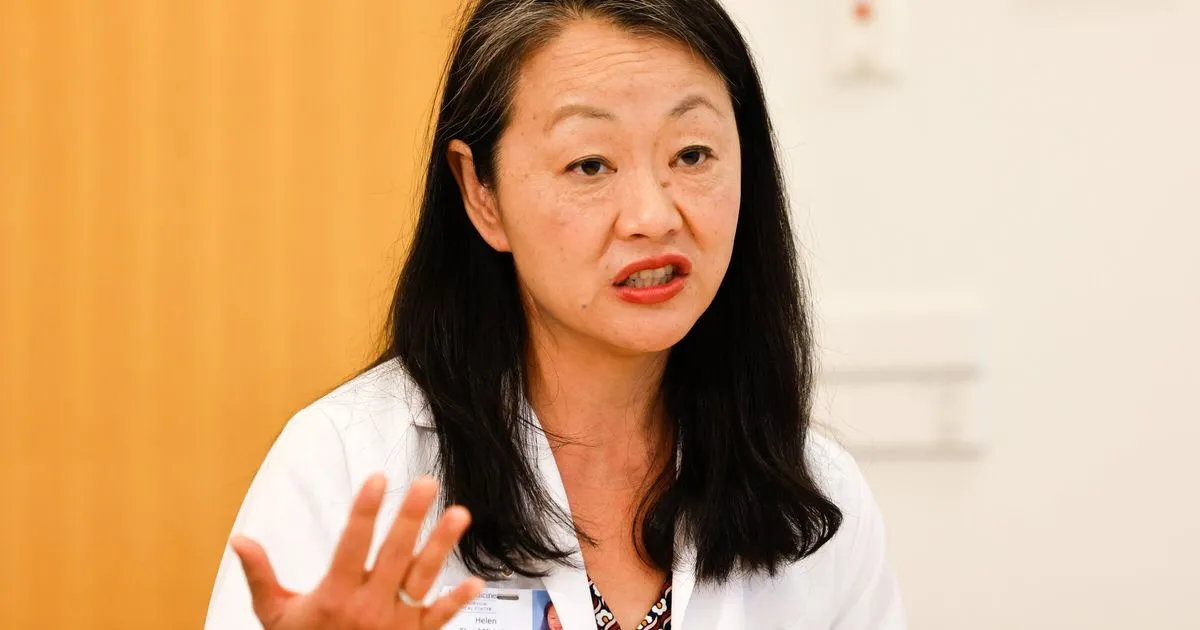
In a recent statement, Dr. Helen Chu, a prominent infectious disease physician at UW Medicine in Seattle, shared her perspective on the implications of a highly anticipated meeting held by the nation’s top vaccine advisers regarding COVID-19 vaccines. Dr. Chu, who previously served on the advisory committee before being removed, expressed that the access to COVID-19 shots is unlikely to see significant changes following this meeting.
The advisory committee, now under the leadership of Health Secretary Robert F. Kennedy Jr., has been restructured, with several new members who are known for their skepticism towards vaccines. This past Thursday and Friday, the committee convened to discuss the potential recommendation of updated COVID-19 vaccines for individuals aged 6 months and older, a routine procedure they have followed annually since the introduction of the vaccines.
Ultimately, the committee decided not to recommend the vaccines, instead advising individuals interested in receiving a COVID vaccine to consult their health care providers first. Dr. Chu noted that, despite this decision, the payment structure for the vaccines would remain “essentially status quo,” allowing for continued coverage by health insurance, including Medicaid and Medicare.
During a news conference on Friday, Dr. Chu emphasized that the recent developments do not alter current medical practices. “Most providers are already discussing the risks and benefits of vaccines prior to administration,” she stated, highlighting the importance of informed consent in the vaccination process.
Another significant point of discussion during the meeting was whether to impose a prescription requirement for COVID vaccines. The committee ultimately voted against this proposal, which Dr. Chu indicated would have made access to immunizations more challenging. However, the recommendations from the committee still require approval from acting CDC Director Jim O’Neill before they can be finalized.
Despite the assurances of continued vaccine access, Dr. Chu expressed concern over potential confusion stemming from the ACIP’s decision. She noted that many current members lack the necessary expertise and understanding of the advisory committee's standard protocols for data review and implementation.
Justin Gill, a registered nurse and president of the Washington State Nurses Association, echoed these concerns, stating that the absence of a clear recommendation “further erodes trust in ACIP and our federal institutions.” He highlighted that mixed messages from once-trusted institutions can lead to uncertainty and fear among the public.
This year has already seen a wave of confusion regarding vaccine policies. In May, Secretary Kennedy announced via social media that the CDC would cease recommending COVID-19 vaccines for healthy children and pregnant women. This announcement caught former CDC chief medical officer Dr. Debra Houry by surprise, as she stated during a Senate committee hearing that she was unaware of such a policy change.
Furthermore, the Food and Drug Administration (FDA) has limited the approval for this year’s COVID vaccine to individuals aged 65 and older or those at higher risk for severe illness—a decision that Dr. Chu described as “highly unusual.” Typically, the FDA’s role is to assess the safety and efficacy of vaccines, while the CDC is responsible for making recommendations regarding who should receive them based on age and health risk.
With the absence of national guidelines, several states have begun to establish their own recommendations. The West Coast Health Alliance, which includes Washington, Oregon, California, and Hawaii, has published directions for immunizations against three respiratory viruses, including COVID-19. They have recommended that everyone aged 6 months and older receive the vaccine, particularly targeting children under 2 years, adults over 64, and individuals at higher risk.
In addition, Washington health officials have issued a standing order allowing healthcare providers to administer COVID vaccines without a prescription, ensuring that residents can continue to access these critical immunizations as they did previously. Dr. Tao Sheng Kwan-Gett, the state health officer, affirmed the commitment to providing vaccine access based on the best available science.